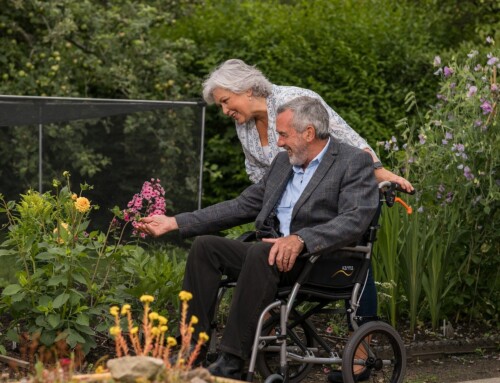As we grow older, many of us become set in our ways. This is not necessarily bad, as we have learned what we like and don’t. However, it can be unsettling when the time comes to make a major life change that disturbs our status quo. Fear of change is one of the most prevalent phobias in society and can be incredibly overwhelming for those who are faced with growing older and finding a new place to live.

If you have a parent or elderly loved one who needs to be moved into a new residence to keep them safe – whether it be your personal home or an assisted living facility – you can expect some level of stress. We have recommendations to help your loved one face inevitable change with confidence, not fear.
What Causes Fear of Change?
The older we get, the more susceptible we are to being uncomfortable with change. Experts believe that the longer something exists, the more likely it is that people have positive feelings about it. The lifestyle that someone has lived for decades is often seen as the best possible option. Another reason may be that senior adults have experienced scenarios when a change turned out badly.
Many circumstances may be behind an overwhelming or crippling fear of change. According to psychologists, these may include:
- Life changes and circumstances that result in emotional distress
- Insecurity or fear of not having enough
- Guilt over anything in their life
- Apprehension about meeting new people
- Anxiety about changes in one’s circumstances
- Fear of failure
- Fear of the past repeating itself, especially if there is a traumatic experience
- A tendency to be oversensitive
Fear of change can cause behavioral changes and new thoughts that can adversely affect the quality of life. These may include:
- Preventing individuals from making needed changes
- Avoiding anything new, even if we are intrigued or interested
- Causing the individual to self-isolate
- Indecisiveness or the inability to make decisions
- Hesitancy to consider a full range of potential options
- Tendency to define self-worth by external measures
- Materialism and dependence on possessions
7 Strategies to Successfully Integrate and Inspire Change
When your loved one needs to make changes in their life in order to guarantee health, safety, and happiness, there are some ways to encourage and support them to embrace change – not be afraid of it.
- Help to establish organization in their daily lives so things feel stable, then leave room for small changes.
- Learn the symptoms of stress so that you can recognize your loved one’s anxiety and address it.
- Speak positively and don’t be dissuaded by your parent’s negative comments. Anticipate objections and be prepared to turn negatives into positives.
- Assist them with researching the new path you are suggesting. (People fear what they do not understand)
- Provide opportunities for them to get away from their daily lives in fun and interesting ways.
- Incorporate calming techniques when you are discussing change – such as favorite music, pleasant aromas, or reassuring physical touch.
- Take a break whenever it is needed. Don’t overwhelm them, and let them digest any information you are proposing. Back off the conversation for a while if all else fails.
Final Thoughts on Helping Parents with Change
When you are discussing a new living situation with your parents, there are many ways you can ease their mind – but if you are considering assisted living, you may need to calm your fears first. At A Banyan Residence, we are happy to meet with you, give you a tour, and answer any questions you may have. You can eat in our dining hall, attend an event, or speak with the staff. Let us know how we can help you make the right decision for your family and help you gain peace of mind.







